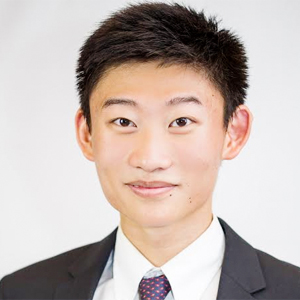Andrew Aday
Andrew Aday is majoring in CS with a focus on machine learning and software systems.

He is currently doing research with professor Junfeng Yang and Suman Jana. With Professor Yang he is working a project involving formal verification of machine learning systems via interval analysis. And with Professor Jana he is working on applying corpus distillation to whitebox fuzzing of the Linux kernel. In the latter project Andrew has so far found 10 new bugs in kernel versions >= 4.10, and is planning to publish in early 2018.
In the summer of 2017 Andrew worked on Instagram's Growth team in Menlo Park, California. He made several improvements to the user acquisition funnel, most notably building passwordless gmail login on Android. Altogether, his work generated a several million increase in monthly active users, year over year.
In the summer of 2016, Andrew worked as a software engineer on Twitter’s Power Advertiser Experience (PAEX) team in San Francisco, doing backend infrastructure work on Twitter’s Ads API and async analytics pipeline. His major project was a real-time framework for inspecting API endpoints and auto-generating documentation (currently in production at https://dev.twitter.com/ads/reference).
During his freshman year, Andrew conducted research at Columbia’s Software Systems Laboratory under Professor Junfeng Yang. He was third author on a paper titled “Active Machine Unlearning,” where he designed and implemented a clustering algorithm that identifies and unlearns malicious data from a compromised learning system. Using data from the Enron and SpamAssasin email corpuses, the unlearning algorithm was tested on naive Bayes classifiers and SVMs that had been compromised via various malicious data injection methods (intentional mislabeling, dictionary attacks, etc). Results were very positive, as the active unlearning algorithm was able to restore these systems to a detection rate even higher than before being compromised, as it unlearned both injected malicious data and “noisy” data.
In the summer of 2015, Andrew also conducted research under Professor Yang on a paper investigating concurrency attacks: a new generation of security exploits that capitalize on errors within multithreaded programs.
Prior to doing research, Andrew acquired a majority of his CS experience while working at tech startups. Most recently, he worked at Cassia Networks, an internet-of-things company, to create a logic engine that learns user behavior patterns to intelligently control household devices. Andrew was formerly the CTO and cofounder of PersonaBase, a recruitment platform that used machine learning and research in team dynamics to augment the hiring process. In the summer of 2014, PersonaBase received an LOI from the Chief Human Resources Officer of Hyatt Hotels to pilot their product.
In his spare time Andrew enjoys watching films and concerts in the city.
